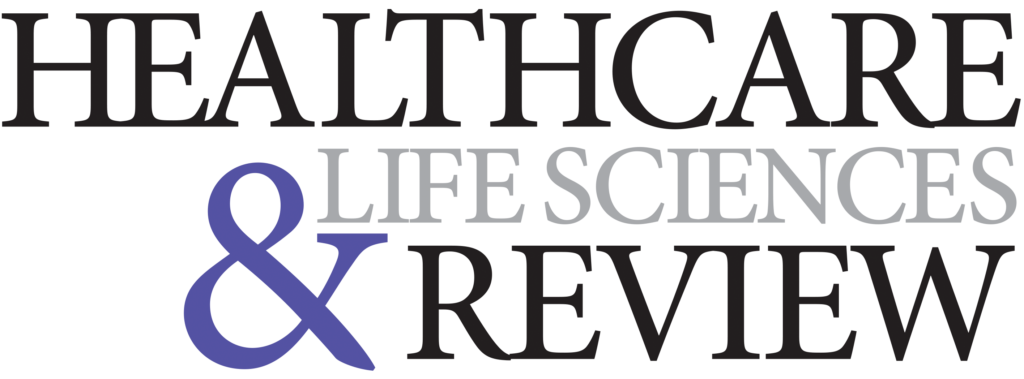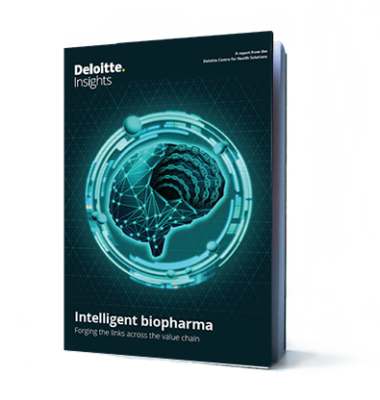
Market Insight on Artificial Intelligence

The AI in Life Sciences Market was valued at USD 902.1 million in 2019 by Mordor Intelligence and is projected to expand at an impressive 20 percent compound annual growth rate in the period 2020 to 2024. Yet despite the massive hype and enthusiasm around artificial intelligence’s propensity to positively disrupt the entire pharma and healthcare spaces, confusion still abounds when it comes to understanding exactly what this technology is and how it functions.
Christina M. Busmalis – Director for Global Life Sciences & Go-To Market Leader for Europe & Asia Pacific, IBM Watson Health
BM Watson Health’s Director for Global Life Sciences & Go-To Market Leader for Europe & Asia Pacific Christina Busmalis gives her insights into how AI and greater utilisation of real-world evidence is shaping the global biopharmaceutical industry…
De-risking Drug Discovery with Artifical Intelligence
On the supply side, AI appears to herald the prospect of de-risking the drug discovery process and doing away with many of the traditional time-consuming approaches at a juncture when drug development had been becoming financially unsustainable and clinical research organisations (CROs) had been systematically failing to improve operational efficiency.
Rethinking Healthcare Provision with AI
As data and information proliferate at an exponential pace, many industries have turned to artificial intelligence to make sense of this information and deliver meaningful insights that can enhance performance. This is certainly the case for the healthcare sector, where the technology augurs nothing less than a paradigm shift towards ‘industrial medicine’ and a thorough optimization of care pathways towards better disease management.
Challenges to AI in Life Sciences
With so many wild predictions being bandied around about AI’s potential to radically transform healthcare for the better, it is easy to lose sight of the fact that materialization of that dream will be far from easy. Indeed, the task a hand can seem quite formidable. Most pharma companies’ existing IT infrastructures are based on legacy systems that were simply not designed with AI in mind: their data, if stored at all, is often kept in unwieldy free form and their systems lack interoperability.
Life Sciences’ Growing Demand for AI Assets
Digital health deal values in biopharma jumped to USD 6.4 billion in 2019, largely thanks to software company Dassault Systemes Americas Corp.’s USD 5.9 billion acquisition of health tech company Medidata Solutions, according to analysis by S&P Global Market Intelligence.
Artificial Intelligence in Healthcare M&A: On the Rise
David H. Crean, managing director for Objective Capital Partners, highlights the latest trends in mergers and acquisition (M&A) activities involving companies with artificial intelligence/machine learning platforms and technologies and their application to healthcare companies.
eBook

Intelligent Biopharma
Forging the links across the value chain
The pace and scale of medical and scientific innovation is transforming the biopharma industry. The need for better patient engagement and experience is spurring new business models. Data generated, captured, analysed and used in real time by innovative medical devices is biopharma’s new currency.
Top Interviews on PharmaBoardroom
Greg Reh
Read full interviewYan TanRead full interviewChihiro SasakiRead full interview
Previous
Next
From Hype to Health: Delivering on the Promise of AI in Biopharma
Krishna Cheriath, chief data officer at BMS, outlines the ways in which AI is already transforming the delivery of healthcare, what modern biopharma companies’ AI innovation…
Technology Convergence in the Digital Era: What Implications for Innovative Medicine Development?
Pierre Meulien of the Innovative Medicines Initiative (IMI) discusses the potential impact that new technological innovations will have on the drug development process…
Improving Health Literacy with Artificial Intelligence
GSK’s Richard Saynor outlines the ways in which an increased embrace of technologies which utilise artificial intelligence can help improve health literacy and therefore patient…
Bridging the Innovation Gap with AI
Professor Jackie Hunter looks at why the pharmaceutical industry has been so slow to adopt artificial intelligence-based technologies and makes a prediction for the industry’s..
How AI is Transforming Pharmacovigilance
Bayer’s Michael Levy examines how artificial intelligence (AI) can assist in both the routine and advanced analytical tasks involved in conducting pharmacovigilance and therefore…
Discover our country reports

Previous
Next
HCLS USAHCLS China HCLS Asia Pacific Data
HCLS FranceRead full interviewUSA DataEurope Data










